How to Learn Chengyu Through Chinese Zodiac Animals
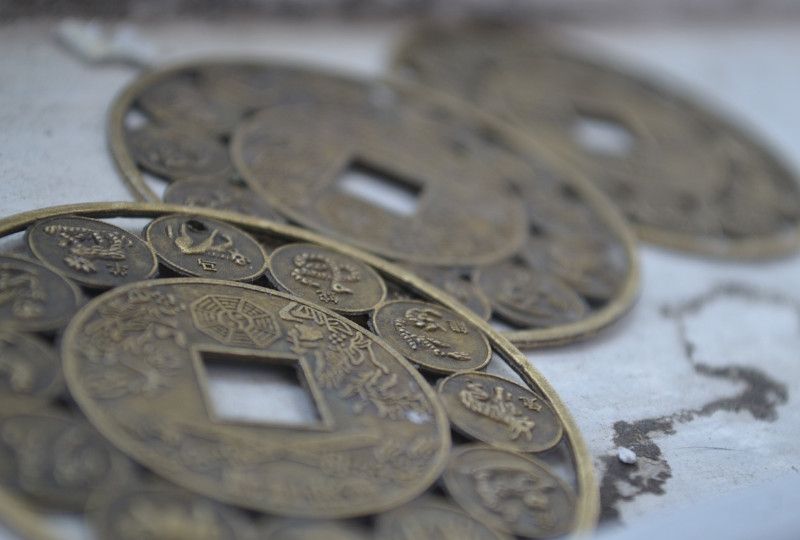
When learning Chinese, the idioms known as "chengyu" can be difficult to learn, memorize, and use correctly. There are hundreds and thousands of them! One of the best ways to master chengyu is to associate them with memorable things, such as the iconic animals of the Chinese zodiac.
Learning how to use idioms is also a great way to strengthen your knowledge of characters and get more insight into Chinese culture. Animal idioms in any language are particularly great for learning about all kinds of folklore. In English, we have all kinds of sayings like "sly fox" or references to "The Tortoise and the Hare". What kinds of animal sayings does Chinese have?
12 Zodiac Animals for Learning Chinese Idioms
The 12 animals of the Chinese zodiac are: 鼠 (shǔ, rat), 牛 (niú, ox), 虎 (hǔ, tiger), 兔 (tù, rabbit), 龙 (lóng, dragon), 蛇 (shé, snake), 马 (mǎ, horse), 羊 (yáng, sheep), 猴 (hóu, monkey), 鸡 (jī, rooster), 狗 (gǒu, dog), and 猪 (zhū, pig).
Below, you'll learn about one idiom for each animal. You'll even see a few example sentences for each, so you can get a sense of using the phrase in context. Let's get started!

Photo by Linh Nguyen on Unsplash
1. 抱头鼠窜(bào tóu shǔ cuàn)
This phrase means to cover your head and scurry away like a rat. It means to run away in disgrace, kind of like the English saying of fleeing with your tail between your legs.
Example Sentences
他们突然抱头鼠窜而逃。
tāmen rén túrán bàotóushǔcuàn ér táo
They suddenly scurried away.
我只能抱头鼠窜地回来
wǒ zhǐnéng bàotóushǔcuàn de huílái
I could only scurry back.
The Story Goes...
Kuai Tong was a strategic counselor to the war general Han Xin during the Chu–Han Contention. To persuade the general to betray the King of Han, Kuai Tong told him a story of the King of Changshan who, after suffering a shameful defeat, returned to the King of Han carrying the head of someone he killed.
So even though nowadays this idiom refers to holding your own head in humiliation, it originally referred to holding someone else's head. Gruesome!

Photo by Ed Robertson on Unsplash
2. 汗牛充栋 (hàn niú chōng dòng)
If you're an avid reader, this one's for you. This chengyu is used to describe having an incredible amount of books! The literal translation of this phrase is roughly: making an ox sweat, filling a house to the rafters. That's quite the collection!
Example Sentences
她的藏书可说是汗牛充栋。
tā de cángshū kě shuō shì hànniúchōngdòng
Her book collection is innumerable, so to speak.
我家的藏书说不上汗牛充栋。
wǒjiā de cángshū shuōbushàng hànniúchōngdòng
I can't say my family's book collection is innumerable.
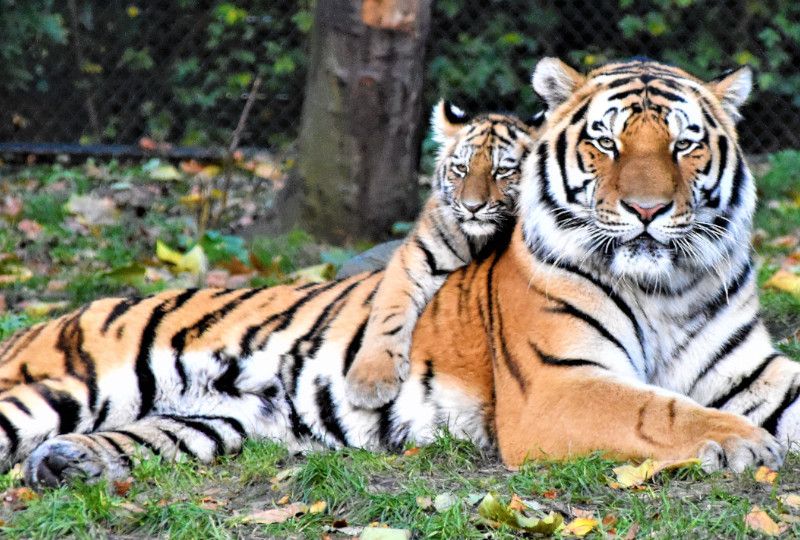
Photo by Waldemar Brandt on Unsplash
3. 骑虎难下 (qí hǔ nán xià)
This phrase is pretty illustrative for a tough dilemma or sticky situation. When you're riding a tiger, it's hard to get off!
Example Sentences
这让他骑虎难下。
zhè ràng tā qíhǔnánxià
This put him in a tough dilemma.
现在真是骑虎难下!
xiànzài shì qíhǔnánxià
This really is a tough dilemma now!
The Story Goes...
A hunter climbed a tree to escape a hungry tiger, but the branch broke and he ended up on the tigers back. As the tiger ran around frantically, everyone thought the hunter was so incredible, but the hunter could only think of what a bad situation he was in, with no way out!

Photo by Adrian Swancar on Unsplash
4. 守株待兔 (shǒu zhū dài tù)
This idiom means to wait for fortune to fall into your lap (often foolishly). Waiting for success to happen to you, waiting the solution to appear, and so on.
Example Sentences
你只是守株待兔。
nǐ zhǐshì shǒuzhūdàitù
You're just waiting for good fortune.
守株待兔的计划没有意思。
shǒuzhūdàitù de jìhuà méiyǒu yìsi
A plan of waiting for good fortune is meaningless.
The Story Goes...
A Song Dynasty farmer saw a rabbit run into a stump, accidentally killing itself. Afterwards, the farmer would put aside his tools and stop working, instead waiting by that stump and hoping that another unlucky rabbit would do the same. But of course, it never happened again.
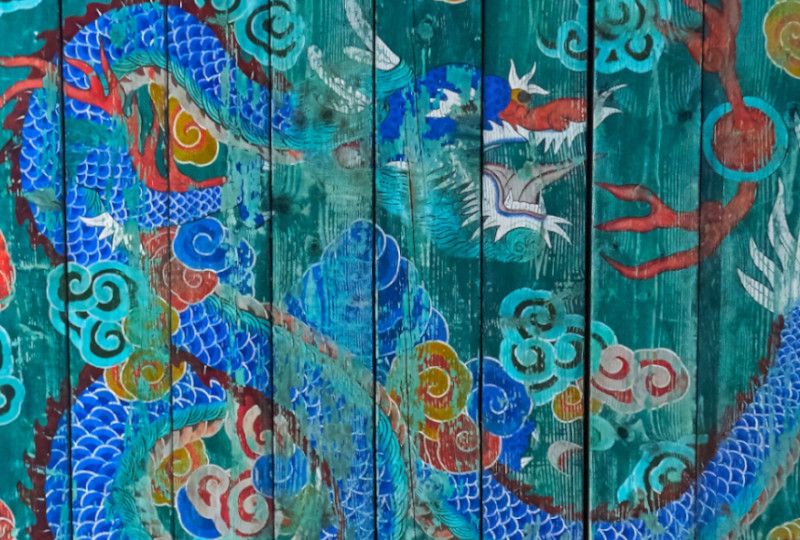
Photo by Mathew Schwartz on Unsplash
5. 画龙点睛 (huà lóng diǎn jīng)
This chengyu means to paint a dragon and dot the eyes, meaning to add the finishing touch! It refers to that final, crucial addition that makes something perfect.
Example Sentences
耳环对我服装添上画龙点睛的作用。
ěrhuán duì wǒ fúzhuāng tiānshàng huàlóngdiǎnjīng de zuòyòng
The earrings are the finishing touch for my outfit.
文章快完成了,只要画龙点睛。
wénzhāng kuài wánchéngle, zhǐyào huàlóngdiǎnjīng
The essay is almost done, it just needs the finishing touch.
The Story Goes...
The painter Zhang Sengyou completed a painting of four dragons, but he left out their pupils. He warned that if they were added, the dragons would fly away. Ignoring this, someone painted in the eyes on two dragons. There was a clap of thunder, and those two came to life and flew away into the painted sky.
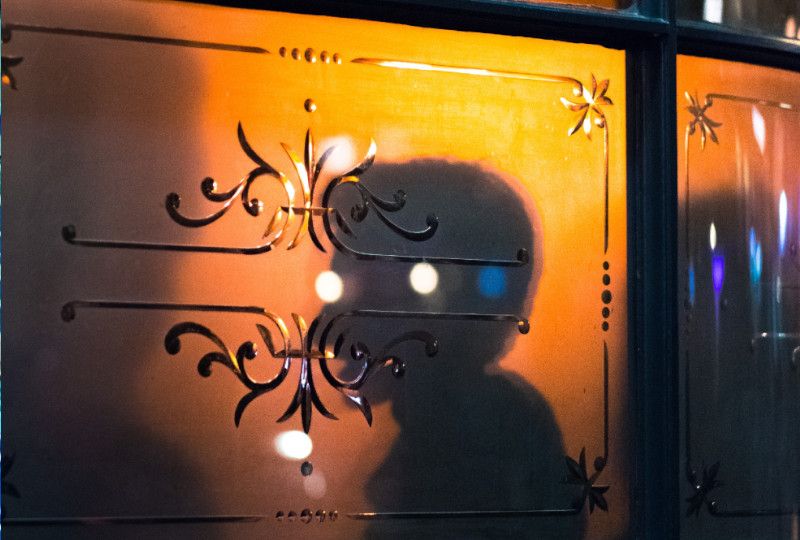
Photo by Craig Whitehead on Unsplash
6.杯弓蛇影 (bēi gōng shé yǐng)
This idiom literally means to see a bow (like a bow and arrow) reflected in a cup as a snake. This describes being incredibly fearful, stressing about imaginary fears! Have you ever seen the shadows and silhouettes of branches and thought they were monsters?
Example Sentences
別杯弓蛇影!
bié bēigōngshéyǐng
Don't suffer from imaginary fears!
看完那部电影,他真是杯弓蛇影。
kàn wán nà bù diànyǐng, tā zhēnshi bēigōngshéyǐng
After that movie, he really suffered from imaginary fears.
The Story Goes...
A man named Yue Guang invited a friend to his home for drinks. The friend saw a small snake in his cup, but wanting to be polite, drank anyway. He went home, and felt ill thinking about the tainted drink. However, the next time he was invited over, he realized it wasn't a snake, but the reflection of an archer's bow hanging on the wall!
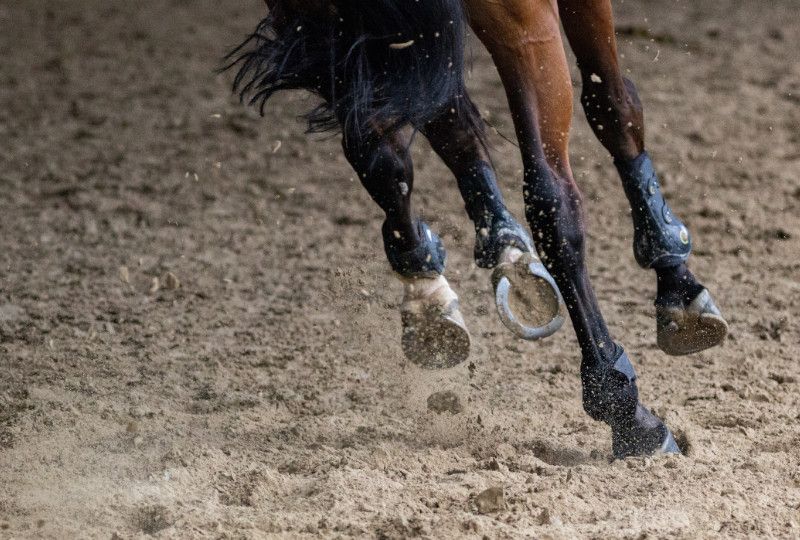
Photo by Philippe Oursel on Unsplash
7. 马不停蹄 (mǎ bù tíng tí)
Have you heard anyone use the English phrase to work like a horse? This is like the Chinese version! It means without stopping, like a horse that doesn't stop to rest.
Example Sentences
她马不停蹄地工作了一夜。
tā mǎbùtíngtí de gōngzuòle yī yè
She worked a night without stopping.
他马不停蹄地跑了。
tā mǎbùtíngtí de pǎole
He ran without stopping.
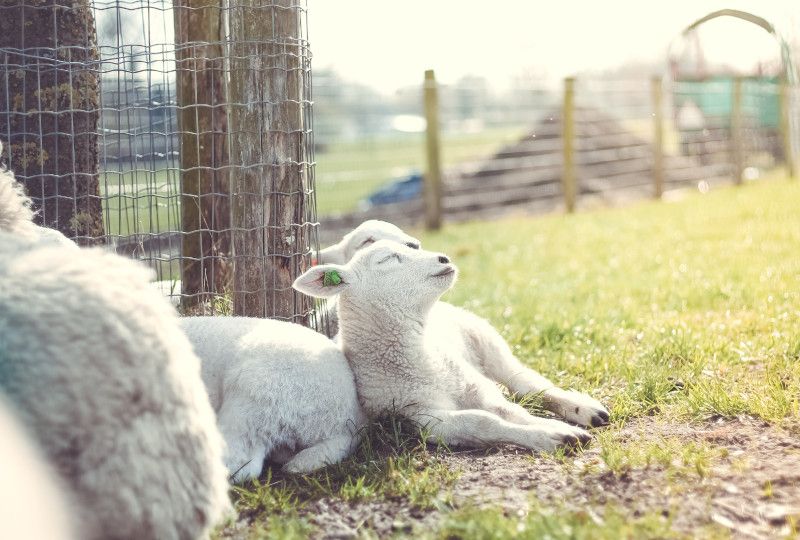
Photo by Erik-Jan Leusink on Unsplash
8. 亡羊补牢 (wáng yáng bǔ láo)
This chengyu literally means to fix the pen after losing the sheep. Figuratively, that means that you can still take action even after something negative has happened. In other words, better late than never!
Example Sentences
你现在亡羊补牢,还不算太晚。
nǐ xiànzài wángyángbǔláo, hái bù suàn tài wǎn
You can make up for it now, it's still not too late.
只要时间和努力,就能做到亡羊补牢。
zhǐyào shíjiān hé nǔlì, jiù néng zuòdào wángyángbǔláo
We just need time and effort, and we can make up for it.
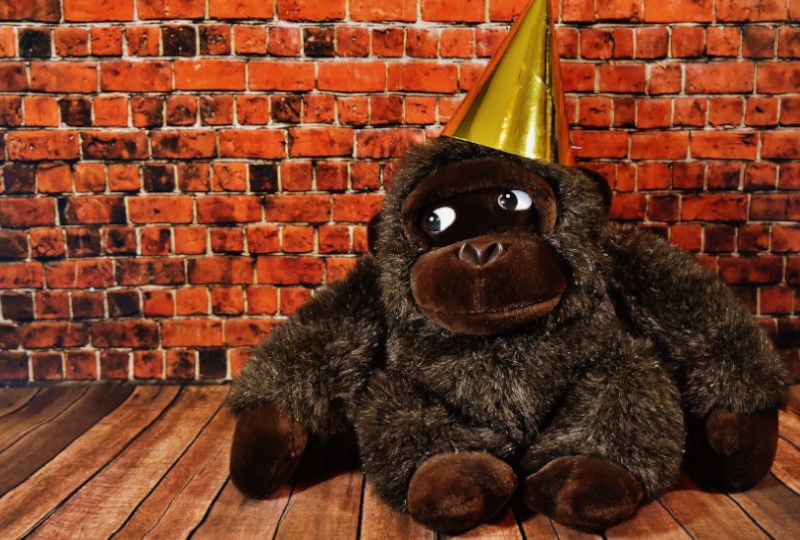
Image by Hier und jetzt endet leider meine Reise auf Pixabay aber from Pixabay
9. 沐猴而冠 (mù hóu ér guàn)
This idiom literally means an ape with a hat, meaning worthless person wearing imposing attire. (Kind of rude for the apes!) It's a bit like the English phrase of putting on airs, or maybe a poser.
Example Sentences
大家都知道他是沐猴而冠的人。
dàjiā dōu zhīdào tā shì mù hóu ér guàn de rén
Everyone knows he is putting on airs.
最近行为很奇怪,我们觉得她在沐猴而冠。
zuìjìn xíngwéi hěn qíguài, wǒmen juédé tā zài mù hóu ér guàn
Her behavior is strange lately, we think she's putting on airs.
The Story Goes...
Xiang Yu, the ruler of Western Chu, went to Xianyang, the capital of Qin, and conquered and plundered the palace. Instead of establishing his own capital in Xianyang, he insisted on returning to his homeland to show off his wealth and winnings. Someone criticized this behavior, likening Xiang Yu to an ape wearing a hat. Xiang Yu overheard this, and sentenced the man to death by being boiled alive.
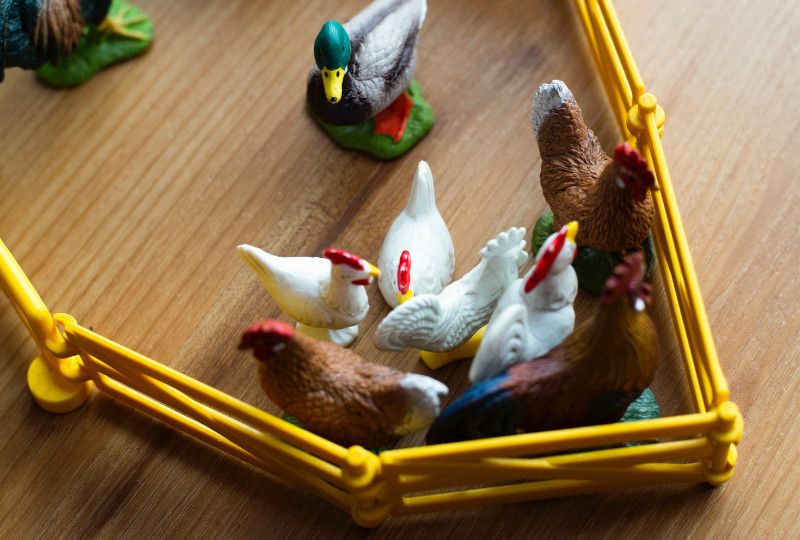
Photo by Markus Spiske on Unsplash
10. 呆若木鸡 (dāi ruò mù jī)
Every culture has an abundance of ways to insult people. In English, we might say someone is as dumb as a rock, not the sharpest knife in the drawer, and so on. In Chinese, this phrase means as stupid as a wooden chicken, used to describe being dumbfounded.
Example Sentences
他们一进去就吃惊得呆若木鸡。
tāmen yī jìnqù jiù chījīng de dāiruòmùjī
As soon as they walked in, they were dumbfounded.
你为什么呆若木鸡?
nǐ wèishénme dāiruòmùjī
Why are you dumbfounded?

Photo by Dallas Reedy on Unsplash
11. 白云苍狗 (bái yún cāng gǒu)
The translation of this chengyu is white cloud, gray dog—just imagine gazing up at the sky, and watching a cloud take the shape of a dog. It refers to unpredictable change.
Example Sentences
你的变化很大,真是白衣苍狗。
nǐ de biànhuà hěn dà, zhēnshi báiyī cāng gǒu.
You've changed a lot, it was unpredictable.
这个世界白云苍狗
zhège shìjiè báiyún cāng gǒu
This world is unpredictable.
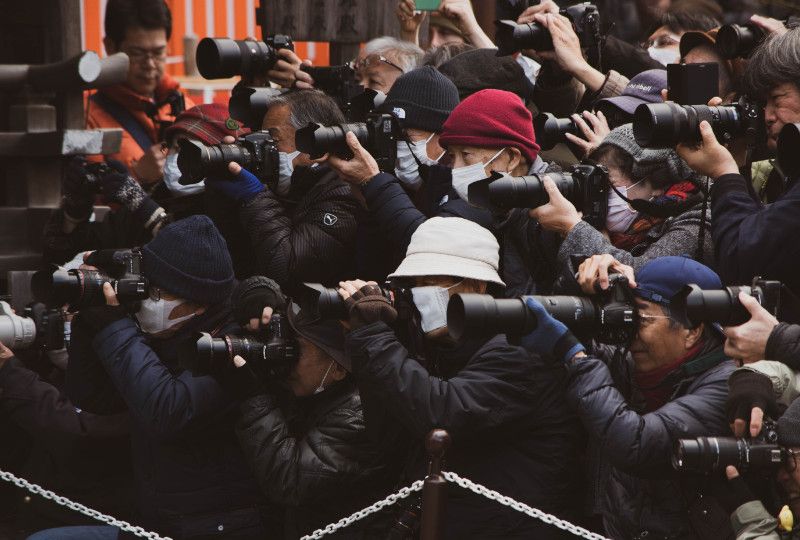
Photo by Zeg Young on Unsplash
12. 人怕出名猪怕壮 (rén pà chū míng zhū pà zhuàng)
We're ending this list not with a four-word chengyu, but with a full phrase! It translates to: people fear becoming famous and pigs fear fattening up. It's a somewhat sober warning about the price of fame.
For lovers of classic literature, this line is mentioned in the famous Chinese novel, Dream of the Red Chamber by Cao Xueqin:
咱们一日难似一日,外面还是这么讲究。
zánmen yī rì nán sì yī rì, wàimiàn háishì zhème jiǎngjiù
Things get harder for us day by day; the outside is still so exquisite.
俗语说的“人怕出名猪怕壮”,
súyǔ shuō de “rén pà chūmíng zhū pà zhuàng
The saying goes, "People fear becoming famous, pigs fear fattening up,"
况且又是个虚名儿。
kuàngqiě yòu shìgè xūmíngr
And this too is a false description.
Some Bonus Chengyu
One Animal Can Have Countless Idioms
Keep in mind that each of these zodiac animals has a ton of associated chengyu. For instance, according to the Chengyu online dictionary, there are around 300 horse-related idioms! Here are just a few more examples:
马后炮
mǎhòupào
Belated action (literally: firing after the horse)
马到成功
mǎdàochénggōng
To win instantly (literally: win as the horses arrive)
路遥知马力,日久见人心。
lù yáo zhī mǎlì, rì jiǔ jiàn rénxīn
Just as distance tests a horse's strength, time reveals a person's heart.
Animal Idioms Beyond the Zodiac
Of course, there are many more animals beyond the twelve in the zodiac. If you enjoyed learning these idioms so far, you can keep using this tactic with all kinds of animals!
狼狈为奸
lángbèiwéijiān
Act in collusion (literally: wolf and beast act maliciously)
鱼与熊掌
yúyǔxióngzhǎng
One or the other (literally: fish and bear's paw)
瞎子摸象
xiāzimōxiàng
Not see the forest for the trees (literally: blind men touch an elephant)
And of course, both zodiac and non-zodiac animals may show up together in the same chengyu.
照猫画虎
zhàomāohuàhǔ
Copy in form but not in spirit (literally: look at a cat, draw a tiger)
猫鼠同眠
māoshǔtóngmián
Act in collusion (literally: cat and rat sleeping together)
前怕狼,后怕虎
qiánpàláng, hòupàhǔ
Full of fears (literally: fear the wolf in front and the tiger in back)
Using Chengyu Properly to Sound Like a Local
Now you're armed with all sorts of new chengyu, their meanings, and examples of how to use them. Think about what kind of conversations and situations you might want to slide one in there! Also, take some time to think about other groups besides animals that you might want to use as a learning aid. For example, you could learn different chengyu based on numbers, on foods, or on the characters in your Chinese name!
Mastering chengyu will take your Chinese to the next level, both in spoken language and in written language. They're also super helpful if you're interested in Classical Chinese. If you need some more refreshers on how to use chengyu, you can check out this Speechling guide to chengyu.
